Creating high-quality sofas that consistently meet consumer expectations is a persistent challenge for furniture manufacturers. If this problem is left unaddressed, it can erode trust and impact sales. At Starborn Furniture, we actively tackle these issues by adhering to rigorous production standards and certifications. Our goal is to ensure that every piece of furniture meets the highest levels of quality and craftsmanship.
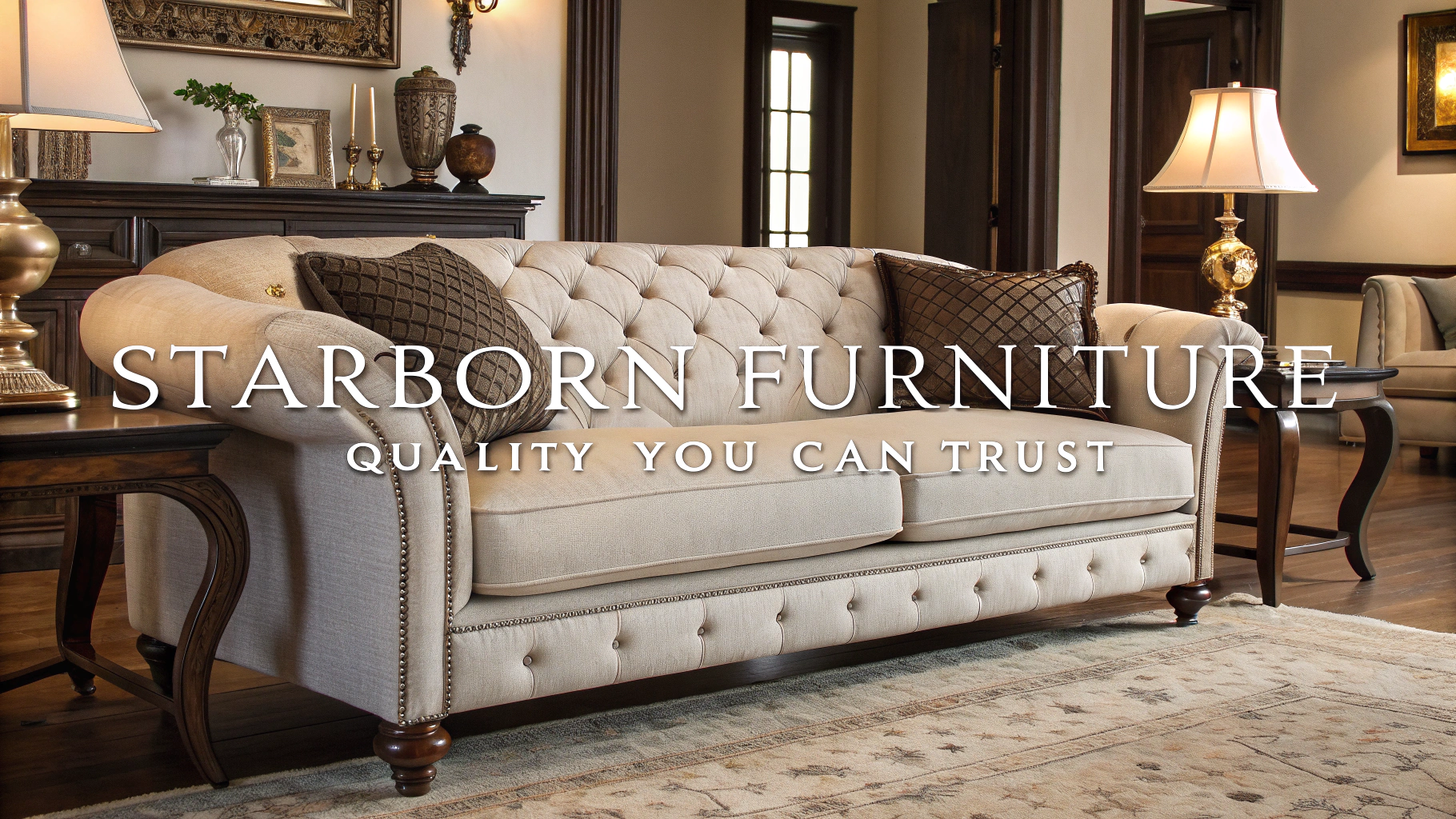
My name is Roger, and as the owner of Starborn Furniture, I can proudly say that our brand thrives on a commitment to quality and transparency. With our roots based in China, our furniture reaches homes across the UK, Germany, France, and Dubai. By offering top-notch craftsmanship, our sofas become a part of life, not just a piece in your living room. This sets us apart in an industry that occasionally prioritizes speed over finesse.
How Do Certifications Build Trust with Consumers?
Certifications build trust by acting as endorsements of quality and ethical production standards. By adhering to certifications like BSCI1, brands can assure consumers that their products are manufactured responsibly and safely, enhancing transparency. At Starborn Furniture, these certifications are a cornerstone, reinforcing our dedication to quality and ethical production. My firsthand experience tells me how valued this reassurance is.
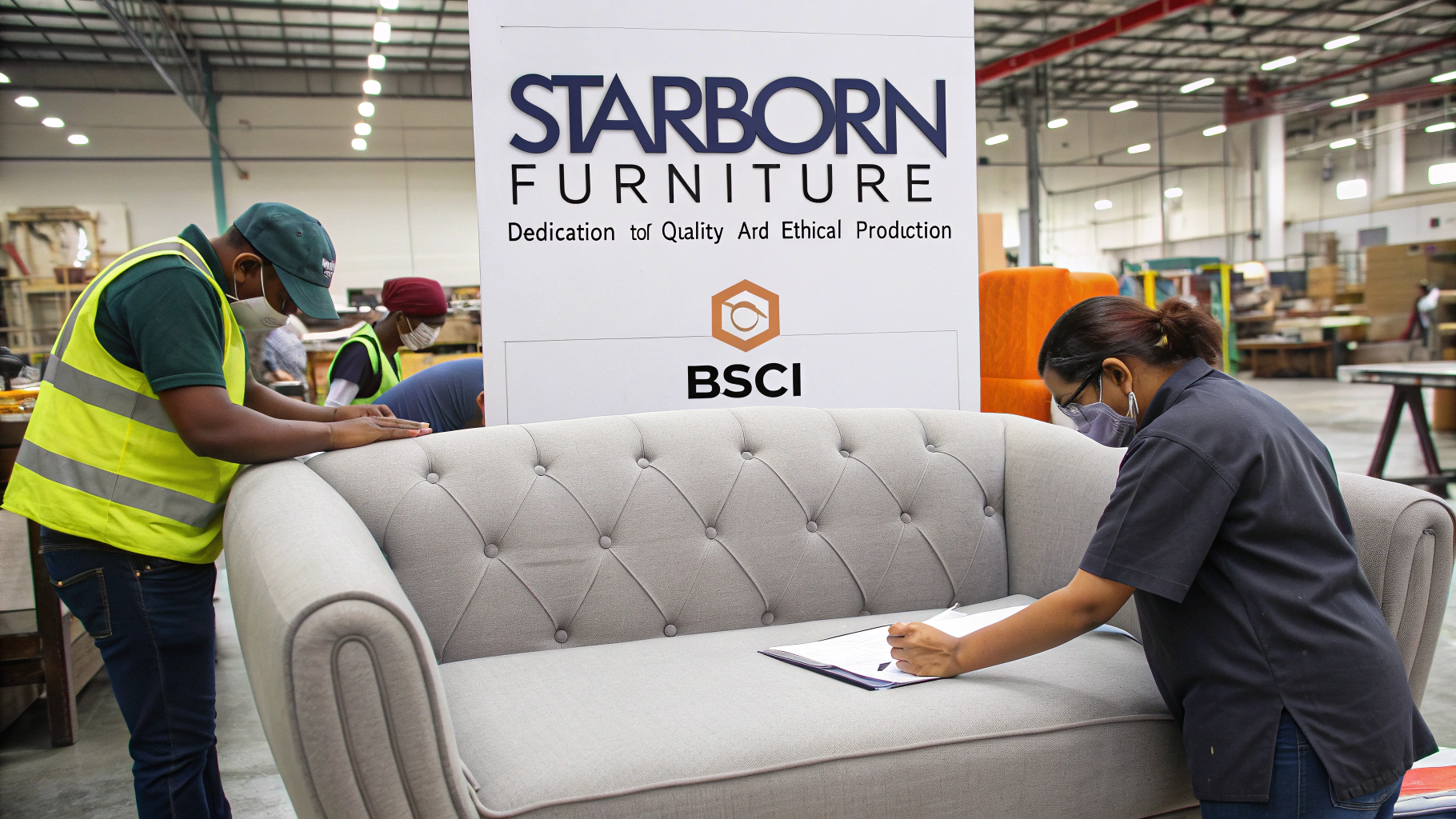
Understanding Industry Pain Points in Certification
In the European market, many brands face challenges due to the strict requirements of certifications like BSCI1. These regulations necessitate transparency and ethical production, stressing brands to maintain high operational standards. Understanding this landscape helps us appreciate the competitive advantage we hold. As I traversed the European market, I was deeply aware of these pain points that impact many manufacturers.
Starborn's Certification Advantage
Starborn Furniture embraces the challenge of adhering to BSCI1 protocols, which reassures customers of our commitment to safety and ethics. These certifications are not mere formalities; they are a testament to our ongoing dedication to quality. Our efforts in certification processes have set us apart, as reflected in customer feedback and our growing market reach.
Customer Trust and Increased Sales
Certified products lead the way to consumer trust and confidence. At Starborn, we observe firsthand how this trust translates to increased sales. Our certification ensures customers feel secure in their purchasing decisions, knowing they are investing in verified quality. This shift in consumer attitude is frequently evident in our expanding clientele.
How Does Your Production System Demonstrate Capabilities?
Our production system's strength lies in its ability to consistently meet high standards while addressing market challenges. By employing advanced production techniques and adhering to strict standards, we ensure that our products maintain quality across all orders. This competence is integral to building and retaining customer trust, a lesson I learned early in my journey.
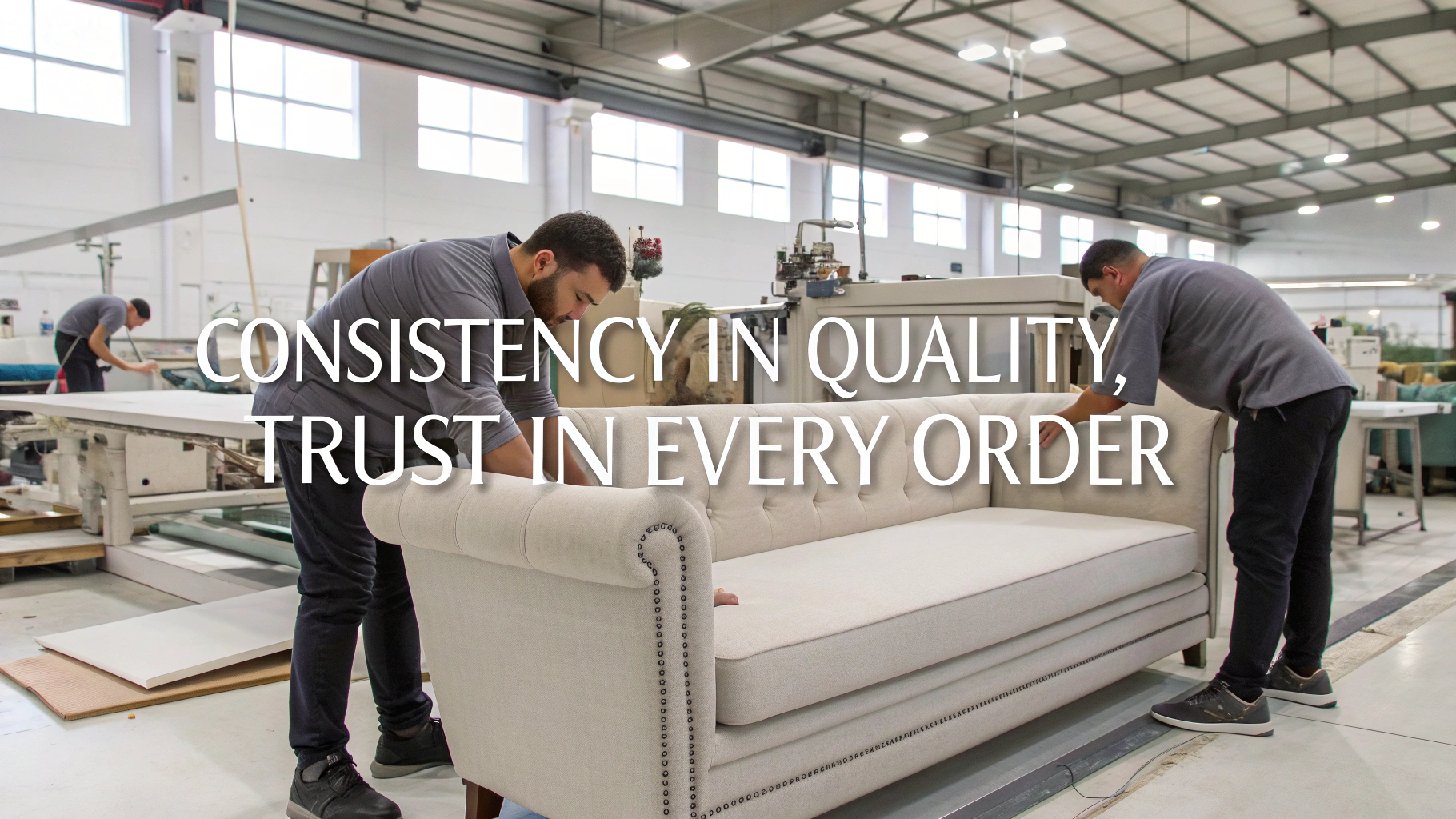
Challenges in Production Consistency
Consistency in production poses a significant challenge for many manufacturers. Large orders can overwhelm production capabilities, leading to quality issues and consumer dissatisfaction. Understanding these challenges allows us to improve our strategies and systems to stand stronger in a competitive market. Early in my career, I witnessed how such hurdles could hinder growth.
Starborn's Production Excellence
Our production expertise is reflected in our adherence to EN 12520/12521 standards, ensuring product quality and consistency. Using five state-of-the-art production lines, we are positioned to minimize defects and maintain impeccable quality across all orders. This commitment to excellence is reflected in every piece we produce, resonating with consumers globally.
Enhancing Customer Confidence and Loyalty
Reliable quality enhances consumer confidence and loyalty. At Starborn, our focus on consistent quality has led to stronger long-term relationships with our partners and customers. By delivering exceptional products, we encourage brand loyalty and foster a market presence built on trust. These relationships have been instrumental in our journey to becoming a leading name.
How Does Flexible Production Meet Market Needs?
Our flexible production model sets us apart in a competitive market by meeting customization demands with efficiency. Retailers, designers, and end-users benefit from our responsiveness, allowing them to cater to emerging trends. Over the years, I've recognized how flexibility becomes an indispensable tool in evolving market landscapes.
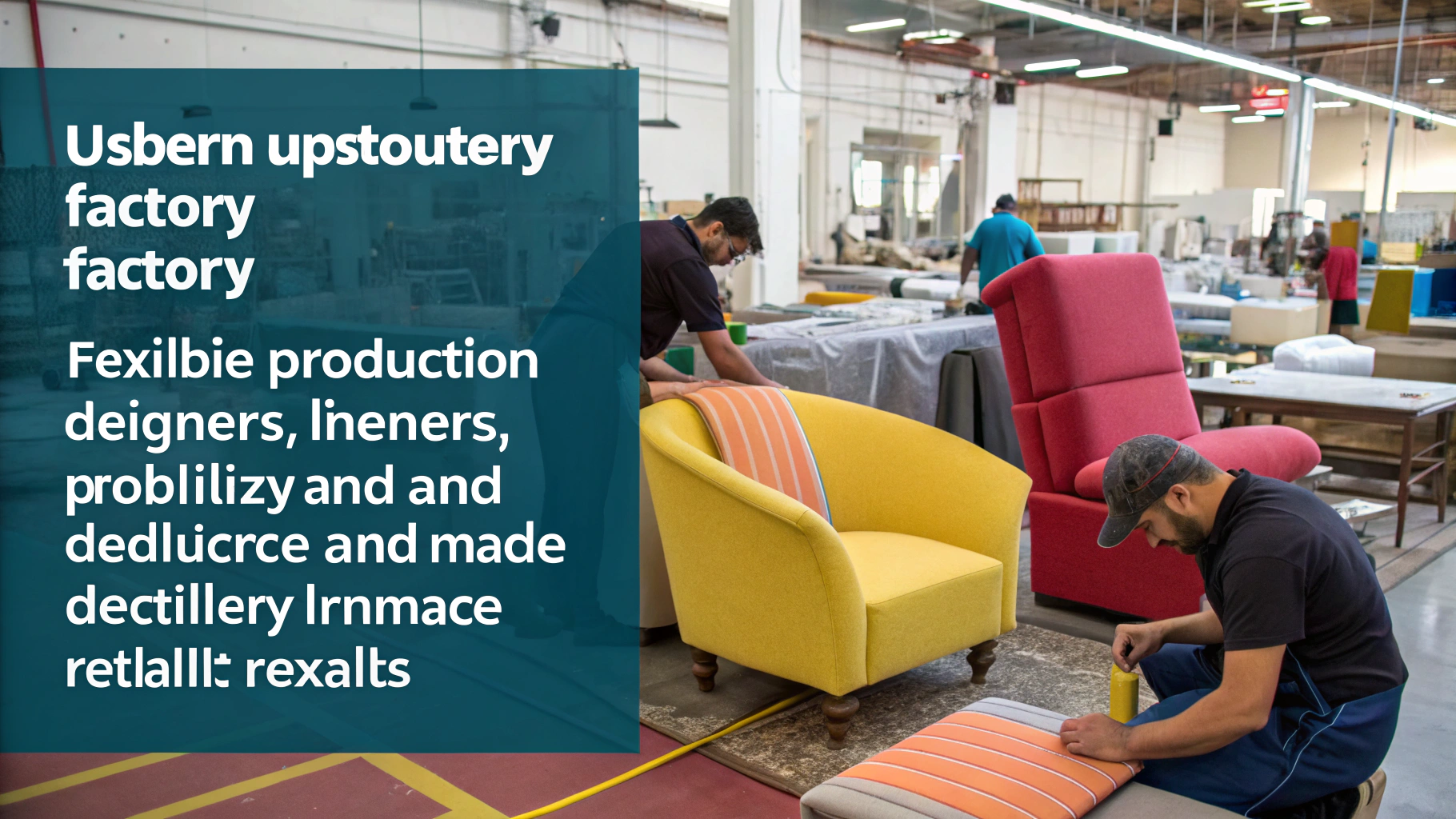
Market Demand for Customization
As customization becomes a significant industry trend, retailers seek partners who can provide OEM/ODM services. This demand challenges manufacturers to balance customization with timely production. Our experience confirms that aligning with market trends holds incredible potential for growth and competitiveness in the industry.
Starborn's Flexible Production Model
Our production model, capable of handling over 2000 units monthly, caters to custom orders with efficiency. This flexibility allows us to accommodate diverse market needs and fulfill changing consumer demands. Our experience highlights that flexibility enhances our competitive edge, forming the backbone of our production efficiency and customer satisfaction.
Empowering Designers and Small Retailers
Our production flexibility supports designers and small retailers, offering rapid prototyping capabilities and trend adaptation. Providing the agility and resources they need strengthens their market positioning. Our collaboration with designers to create unique, market-specific products is a testament to our empowering production approach.
How Do You Ensure Supply Chain Transparency?
Transparency in the supply chain is vital for building consumer trust and maintaining brand integrity. At Starborn, we emphasize traceability, allowing customers to access sourcing and production information easily. This transparency builds trust with customers, a key learning from my many years in the industry.
[^2] with a checklist](https://starborndesign.com/wp-content/uploads/2025/03/1741753330637.1804.webp)
Typical Transparency Challenges
Opaque supply chains challenge brands by compromising consumer trust and damaging reputations. Anonymity in the supply chain generates doubts about sourcing ethics and production accountability. Learning about these impacts motivated us to prioritize transparency and openness in all our operations.
Starborn's Transparent Approach
Our track-and-trace system offers complete visibility into the journey a product takes from raw material sourcing through to production. This initiative illustrates our commitment to transparency, enhancing customer trust and safeguarding our reputation in the market. Such systems have become integral to our operations, enhancing customer relations and support.
Building a Trustworthy Brand Image
Implementing transparency initiatives contributes to a positive brand image, enabling customers to place their trust in us. Through open communication and accountability, we foster relationships built on confidence and mutual respect. This approach has distinguished our brand, reinforcing our reputation as a trustworthy industry leader.
How Do Sustainable Materials Enhance Product Value?
Incorporating sustainable materials2 into our production process adds value to our products and resonates with eco-conscious consumers. Our sustainability practices stem from our commitment to quality and environmental stewardship. I'm proud to say that our vision for a better future is reflected in each piece we create.
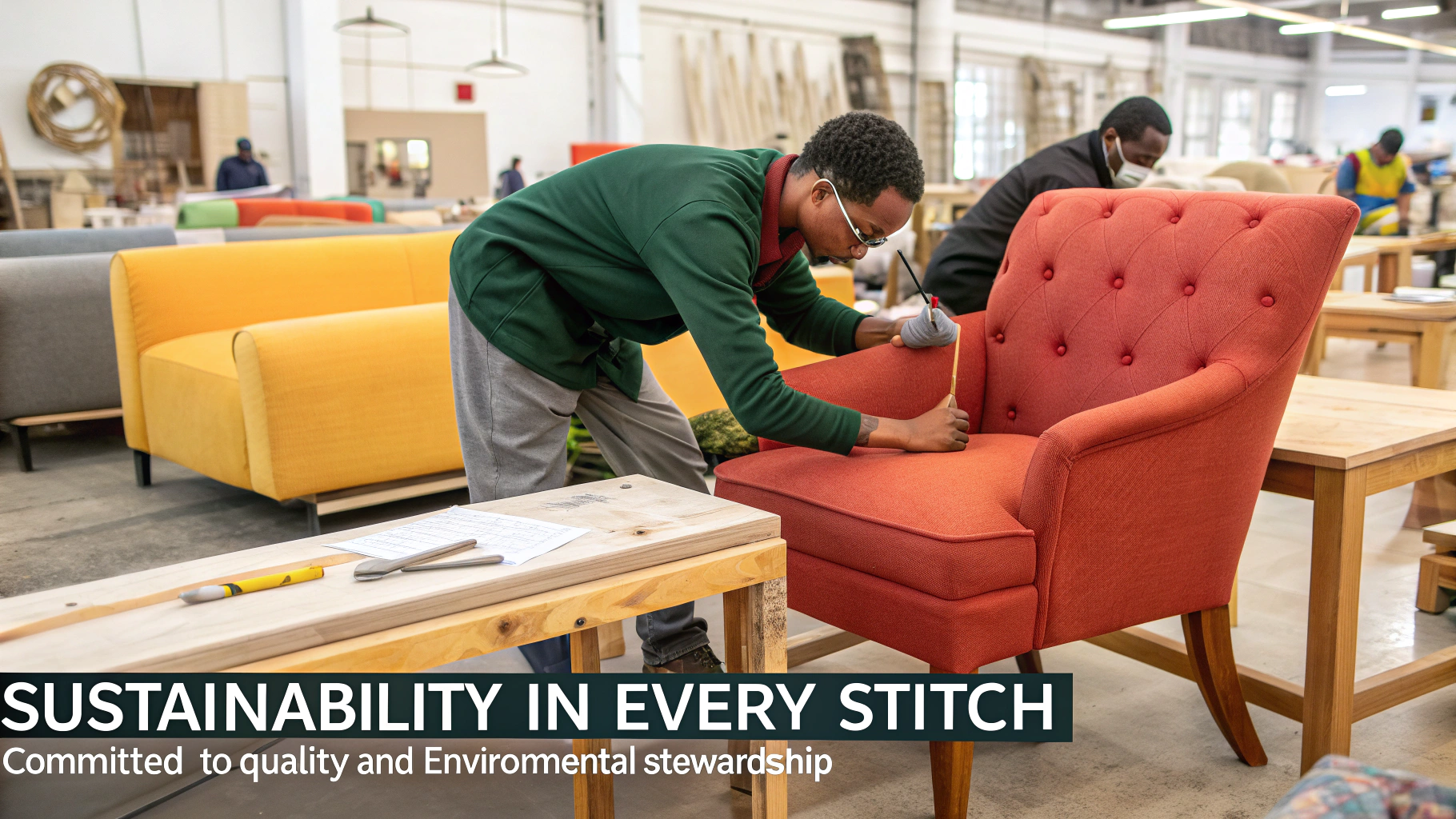
Environmental Concerns in the Market
Eco-conscious consumers drive demand for sustainability, prompting brands to reassess their material sourcing. Meeting this demand is crucial for aligning with consumer values and market trends. Learning about these environmental concerns guided us in integrating sustainable practices into our manufacturing process.
Commitment to Sustainability
At Starborn, sustainability is integrated into every facet of our operation; from the use of FSC-certified wood to employing eco-friendly materials, our commitment is clear. This initiative positions us as leaders in eco-conscious production, a goal we proudly pursue. Our dedication to sustainability is increasingly recognized by our global customer base.
Long-Term Benefits and Market Division
Sustainability offers long-term benefits and distinguishes us in a crowded market. Our efforts attract eco-aware consumers seeking products aligning with their values. Our commitment to sustainable practices enhances our reputation and provides a competitive advantage by resonating with changing consumer preferences.
How Does Customer Interaction Foster Education?
Educating consumers about our production processes and quality distinctions empowers them to make informed purchasing decisions. At Starborn, we prioritize consumer interaction to enhance understanding and satisfaction. This practice was forged from the belief that knowledge nurtures trust and loyalty.
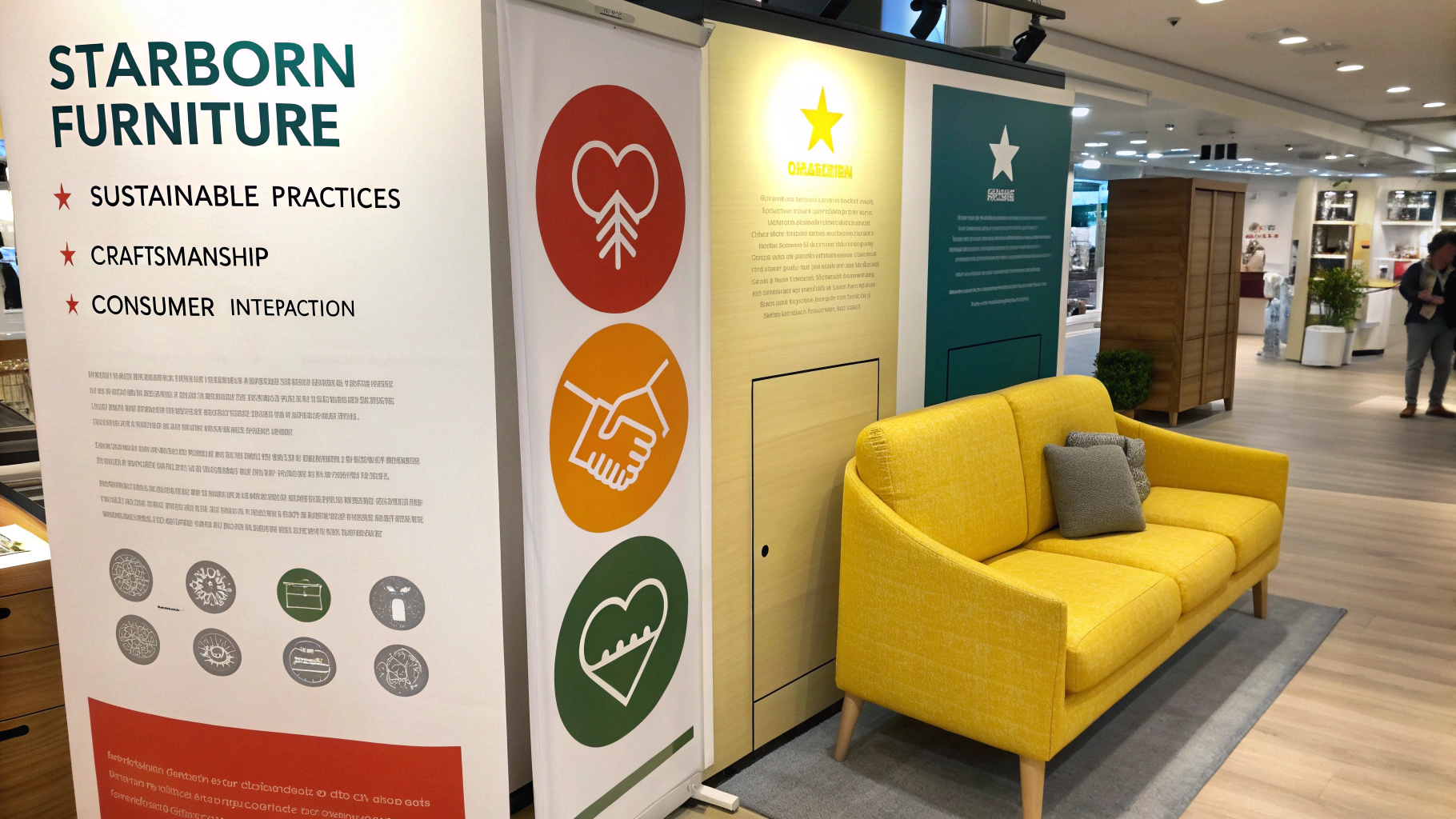
Struggles with Consumer Awareness
Brands often lack effective means of educating consumers about product quality and distinctions. This insufficient awareness could hinder consumers from making informed purchasing decisions, diminishing satisfaction. Understanding these hurdles, we prioritize educational initiatives to empower our customers.
Starborn’s Educational Initiatives
Through interactive platforms and comprehensive campaigns, we educate customers on our materials, processes, and quality assurance. These initiatives create transparent communication channels between us and our consumers. At Starborn, we understand that informed customers are satisfied customers, reducing uncertainties and enhancing purchasing confidence.
Improving Customer Satisfaction and Awareness
Education fosters satisfaction by enabling consumers to understand our product's distinct qualities. At Starborn, informed consumers report higher satisfaction levels, driven by confidence in their purchases. This phenomenon confirms our belief that knowledge enhances customer experience, driving better purchasing decisions and reducing return rates.
How Do Ecological Collaborations Transform Business Models?
Collaboration with ecological partners transforms business models, promoting sustainable practices and enriching product value. At Starborn, we understand the potential of these collaborations in setting industry standards and advancing ecological initiatives. When partners align on a shared mission, the impact is widespread and profound.
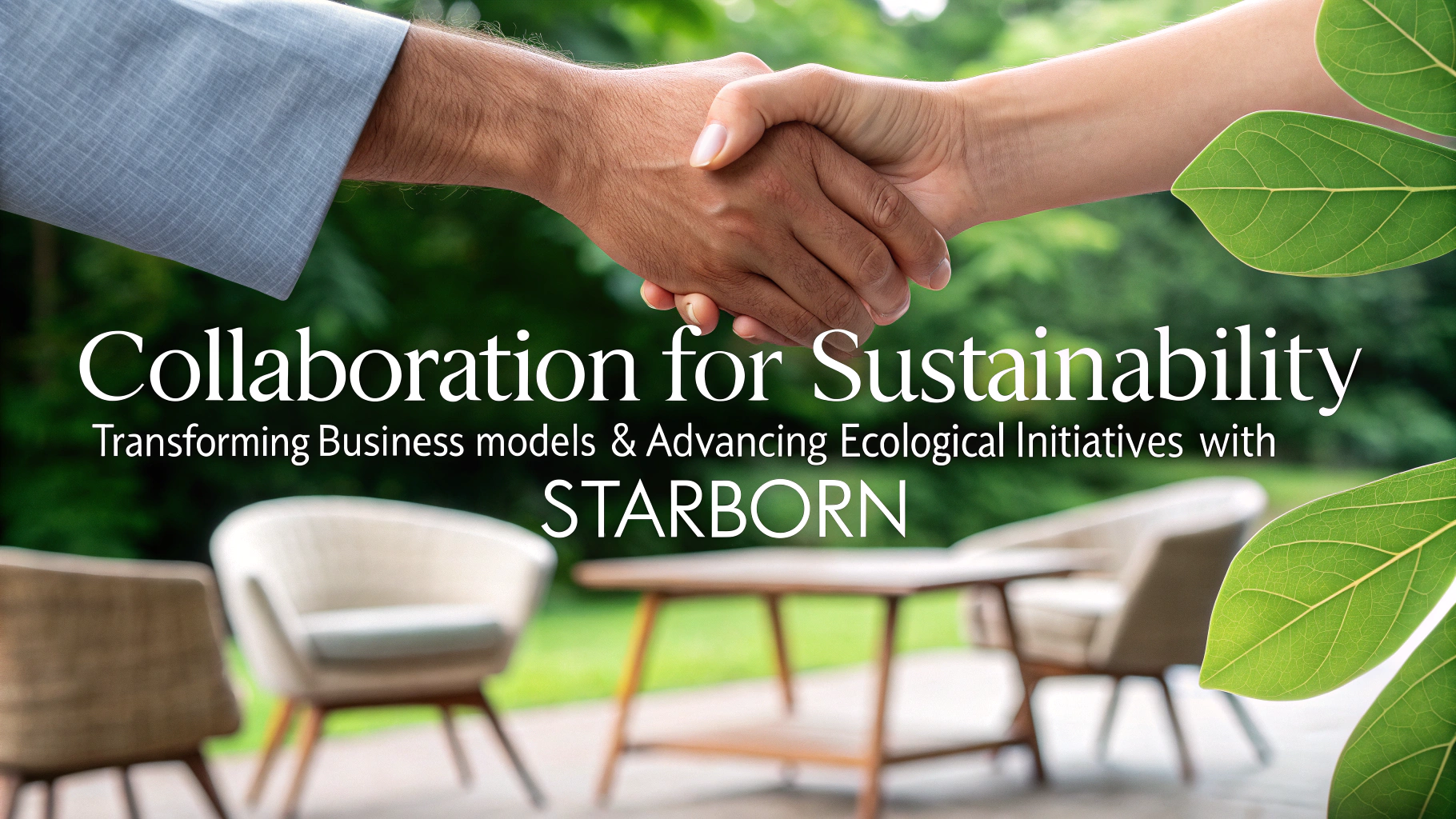
Difficulty in Ecological Integration
Ecological integration presents challenges as brands adapt their business models to meet sustainability demands. These challenges include restructuring operations and nurturing symbiotic partnerships. Understanding these hurdles is crucial in reevaluating industry norms, exploring new opportunities for transformation in our business practices.
Starborn's Comprehensive Ecological Approach
Our comprehensive ecological approach bridges the production chain from design to sales, integrating varied stakeholders in the process. This collective ecosystem nurtures innovation and strengthens industry partnerships, reinforcing our market position as a leader in ecological responsibility and integrity.
Elevating Brand Value and Industry Standing
Collaborative ecological efforts elevate our brand value and enhance our industry standing. Partnering with sustainability-driven entities aligns us with forward-thinking practices while strengthening industry alliances. These collaborations further solidify our reputation and drive positive change within the industry.
Conclusion
Starborn Furniture's commitment to high production standards extends across every facet of our business, from certifications to sustainable practices. By maintaining transparency and fostering collaboration, we enhance product value and consumer trust, emerging as a leader in furniture craftsmanship and innovative design.
-
Exploring BSCI certification will provide insights into its role in ensuring ethical production and consumer trust, crucial for informed purchasing decisions. ↩ ↩ ↩
-
Discovering the advantages of sustainable materials can highlight their importance in attracting eco-conscious consumers and enhancing product value. ↩

